Hello dear ones,
I’ve decided to switch things up! On Mondays I’ll be sending out your regular, free CARESCAPES, and then on Fridays you’ll get another batch of writing. I’m hitting pause on Wounding/Wanting Diaries as I move into doing edits on my book Touch Me, I’m Sick, with my editor!!! So instead, I’ll be sharing pieces of the book on Fridays.
Thank you so much to the 6000 free subscribers to this newsletter. Am dreaming of reaching 10,000 total subscribers and 500 paid by the end of 2024 — a lofty goal, but we’re aiming high. If you love this writing….
With love,
Margeaux
F and I are sitting across the room from our couples therapist. I’ve been sharing how anxious I get when I perceive F to be in a bad mood.
“It feels like life or death in my body. Like if I don’t make them feel better, I will die.”
I know this feeling well. And I share how it reminds me of how I had to manage my father’s moods, as well as my brother’s (for the latter would impact the former). When my father was angry or upset, he shut down, pulled away. When he did talk, it would be short, clipped responses. He rarely raised his voice, but the anger he felt towards me was present in his red cheeks, the way his eyes glared.
F is not my father. (Though as I write this I chuckle at how the first letter of my partner’s name is the same letter for “father.”) Not even close. And yet, when F isn’t in a good mood, my body collapses the two people into one. While Freud (another F, lol) was wrong about many things, he was annoyingly right that we choose people who remind us of our parents. Or, perhaps a different way of saying this is that we choose people who will confront us with our attachment wounds.
I do not see this as a bad thing. In fact, over the years, I’ve come to realize that it is through our relationships — most often the romantic and sexual ones (a fact that annoys me to no end as a relationship anarchist) — that we are asked to confront our wounds so that we can heal them.
In my therapy session two days later, I talk with Amy about my inability to just let F be in a bad mood.
“Can you think of what age you were when you first felt this?” she asks me.
“Oh yeah. Easy. I was a teenager.”
We’ve been working with my inner teen a lot this past year, as I welcome in the bratty teen that lives within me who just wants to give up people pleasing and just be in a bad mood.
“So what does teen Margeaux want to do when F is in a bad mood?”
We’ve been talking specifically about when this happens in the car, where I can’t just move into a different room for us to take some space. The image that comes to me is just putting on my headphones and ignoring F. A kind of turning inwards.
“Exactly!” Amy responds. “I love this image of you telling F that you love them but that you’re gonna take care of your inner teen right now. Then you can just put on your headphones and stare out the car window.” We both love the teen vibes that this image conjures.
Later that night, I tell F about my session.
“I know that you hate triggering me, but it’s like when you do, I’m being given an opportunity to work with my inner teen. It’s kinda like I need to be triggered in order to actually turn my attention towards them. I can do some reparenting.”
Our conversations, both in and out of therapy, remind me of Judith Butler’s words in Precarious Life: The Powers of Mourning and Violence when she proclaims: “Let's face it. We're undone by each other. And if were not, we're missing something.” While I love her words, I’d like to revise them here: “Let’s face it. We’re gonna trigger each other. And if we’re not, we’re missing something.”
When I made a post recently called “why am I freaking out in this secure relationship?” someone left a comment saying something to the effect of “you shouldn’t be freaking out in a secure relationship. If you are, that’s a red flag and you need to gtfo.” I disagree.
My current partnership and my last one were both securely attached and I freaked out all the time. I was triggered AF because my body didn’t understand the feeling of security and safety in the landscape of a romantic attachment. As someone with disorganized attachment, this is a very normal response.
Because we grew up with caregivers who were unsafe, our safety map is all messed up. When in danger, we turn towards our caregivers to keep us safe. But when our caregivers are the danger, the only way we know how to make sense of this is to find safety dangerous, and dangerous things safe.
But even if you don’t have disorganized attachment, it’s likely that you have attachment wounds (I honestly haven’t met a person who doesn’t, even amongst those who grew up with loving totally non-abusive parents). Being with someone who triggers you doesn’t mean that you’re incompatible. In fact, it might actually be the case that the opposite is true.
Yesterday, F and I attended a brilliant astrology workshop called “Bad Compatibility.” We initially signed up because Cancers and Aquariuses are talked about as deeply incompatible signs. And while F and I do not put much stock into astro compatibility, we were excited to explore how we could better understand and work with our relational astrology.
There was so much that I got out of this workshop (truly hands down one of the best astrology workshops I’ve ever taken, thank you Blair), but what I appreciated the most was the way that Blair sought to normalize challenges in relationships, declaring “bad compatibility is the future.” What they mean is that bad compatibility gives us something to strive for. In answer to the question “Why would bad compatibility be good?”, Blair shared the following:
Helps us avoid conformation bias, as well as the same faults;
Promotes discernment in terms of what we really want — and what we don’t want;
Fulfills a specific part of you that is important to be exploring right now;
Gives us novel experiences outside of our chart’s comfort zone.
I would add to this list that bad compatibility (aka being with people who trigger your old wounds) can really truly help us heal, if we’re open to it.
As if I couldn’t love this workshop more, Blair ended with some slides from one of my favorite queer theorists, the late Lauren Berlant.
In their post-humously published book On the Inconvenience of Other People, Berlant essentially argues that intimacy, love, relationality, all require us to confront just how deeply inconvenient other people are. What they mean by “inconvenient” is that feeling of friction we get when we are in relation to another human being. This fiction arises from “an experience of everyday aversion, adjustment, minor resistance, and exhaustion” of someone else getting “under our skin.”
“We cannot know each other without being inconvenient to each other. We cannot be in any relation without being inconvenient to each other. This is to say: to know and be known requires experiences and exerting pressure to be acknowledged and taken in…Acknowledgment requires a disturbance of attention and boundaries. Sustained acknowledgment requires self-reorganization.”
For Berlant, “the sense of inconvenience…is a feature of everyday love.” In fact, “When I say ‘I love you,’ it means that I want to be near the feeling of ambivalence our relation induces and hope that what’s negative, aggressive, or just hard about it doesn’t defeat what’s great about it.” This, for me, is one of the greatest definitions of “I love you,” because it recognizes that love is challenging. The same is true of healing.
When we heal, we are confronting everything that one might deem negative, aggressive, or just hard — in other words, all of the experiences that we’ve repressed in order to survive. We do the hard work because we know that it will get us somewhere great. That what makes it hard “doesn’t defeat what’s great about it.”
Love — and healing, I would argue, involves “leaps into insecurity, a disorganized meanwhile,” because healing, and loving, take time. We learn, as Berlant writes, to “enjoy risking inventive flailing and experiments in thought and practice that might lead to nothing or something…” Though I believe that they do, always, lead to something — even if that something is the dissolution of a relationship, a something that might feel like nothing.
All of this to say, I can’t help but wonder what possibilities open up when we normalize being triggered by our partners / our relationships? If, instead of opting out or turning away, we chose to move towards the wound that is open and asking to be healed? What if we stopped seeing being triggered by those we love as a negative thing, but rather as a wound-opening / world-opening portal to a love that is as rich as it is inconvenient? This is the kind of love that I want — and the kind that I’m grateful to have.
Because, let’s face it: we’re going to trigger each other. And if we’re not, we’re missing something.
Culture Diary
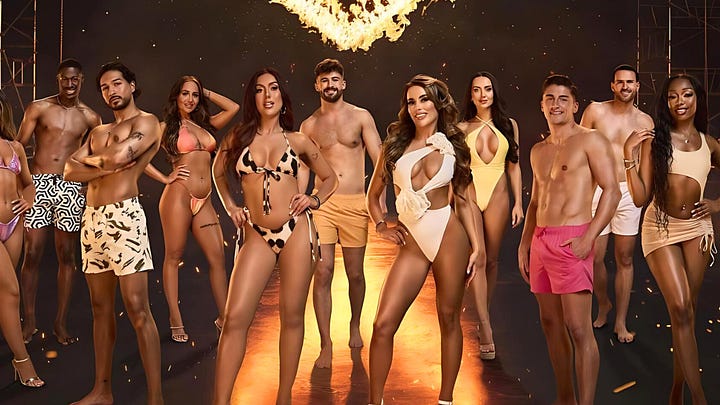
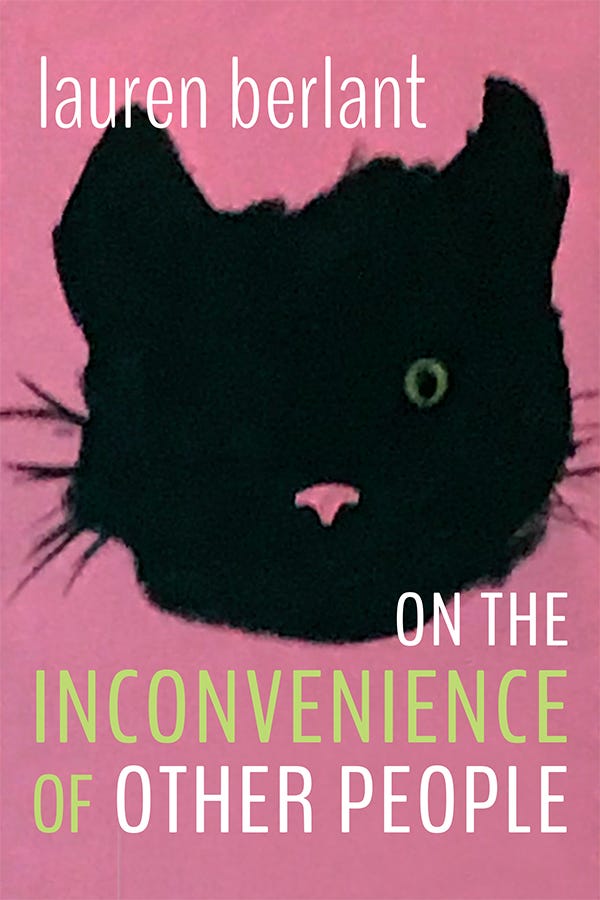
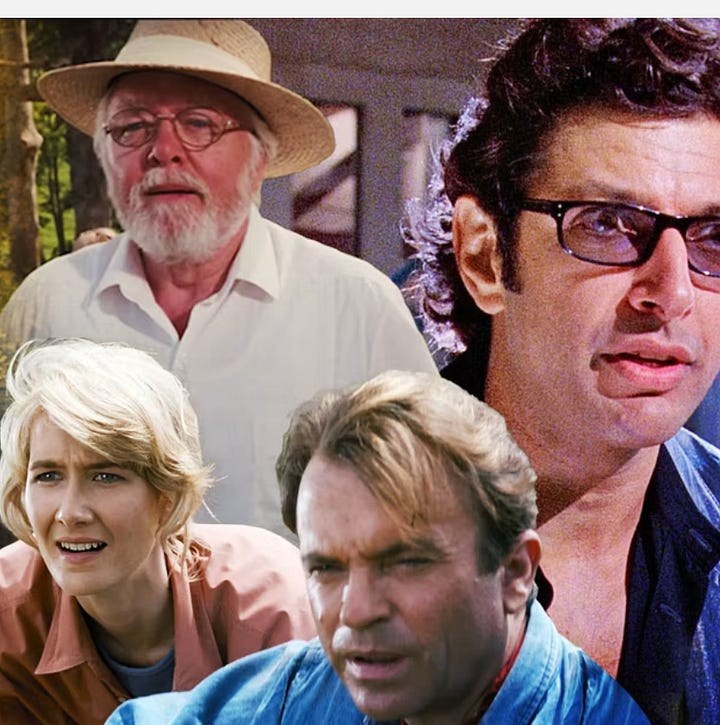
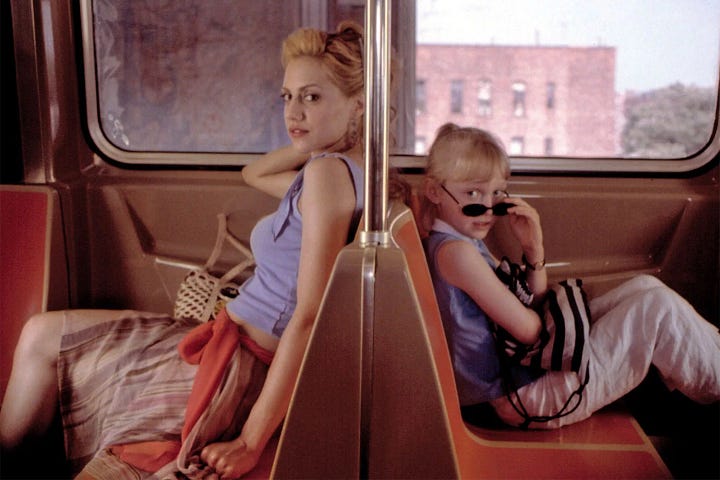
Last week, like so many, I felt so depleted, moving through a chronic pain flare up, and just general exhaustion at *gestures at the world.* In these states, I usually just binge watch a tv show…which is, indeed, what I did.
I once tried getting into the Love Island franchise but was overwhelmed by just how many episodes are in each season. But I can now say that I’m a changed human, and much like Rue in Euphoria, I have watched countless hours of the newest UK season in mere days.
Have spent the past few days returning to On the Inconvenience of Other People by the late queer scholar Lauren Berlant. Their book Cruel Optimism is one of my absolute fav theory books and Sex, or the Unbearable made me feel so seen (the title says it all really). Basically, Berlant really wants to normalize how hard intimacy can be — and also how rewarding.
This past weekend my partner and I had a very LA experience going to see Jurassic Park in a park! We both LOVE dinosaurs and it’s kinda wild that it took us 1.5 years into our partnership to watch the best dinosaur movie of all time. I wish they made movies like this still. Please enjoy us cosplaying as Sam Allen and Jeff Goldblum.
So I’d never seen the 2003 Uptown Girls with one of my fav actors Brittany Murphy (RIP) and while I found myself triggered at an 8-year-old Dakota Fanning having to parent the 22-year-old Murphy, I definitely wasn’t expecting to bawl my eyes out at the end. The TLDR: I was a dancer up until my mom’s death when I was 11 due to a really shitty dance teacher who was upset with how many classes I missed because I was literally visiting my mom in the hospital. Getting to see Fanning’s character Ray be an actual child while being loved and supported in the wake of her father’s death had me destroyed. And F sent me this directly after we watched it:
Thanks for making it all the way to the end! If you’re feeling called to support me and this writing, here are a few ways you can do so!
Become a paid subscriber to this newsletter for $5/month — or on sale right now for $3.35!!
Sharing is caring: share this newsletter on your social media and tag me! No matter how many followers you have, or whether your account is private, these endorsements go a long way.
Send me a tip via Venmo, PayPal, or my website! Every $1 truly does add up and brings a smile to my face.




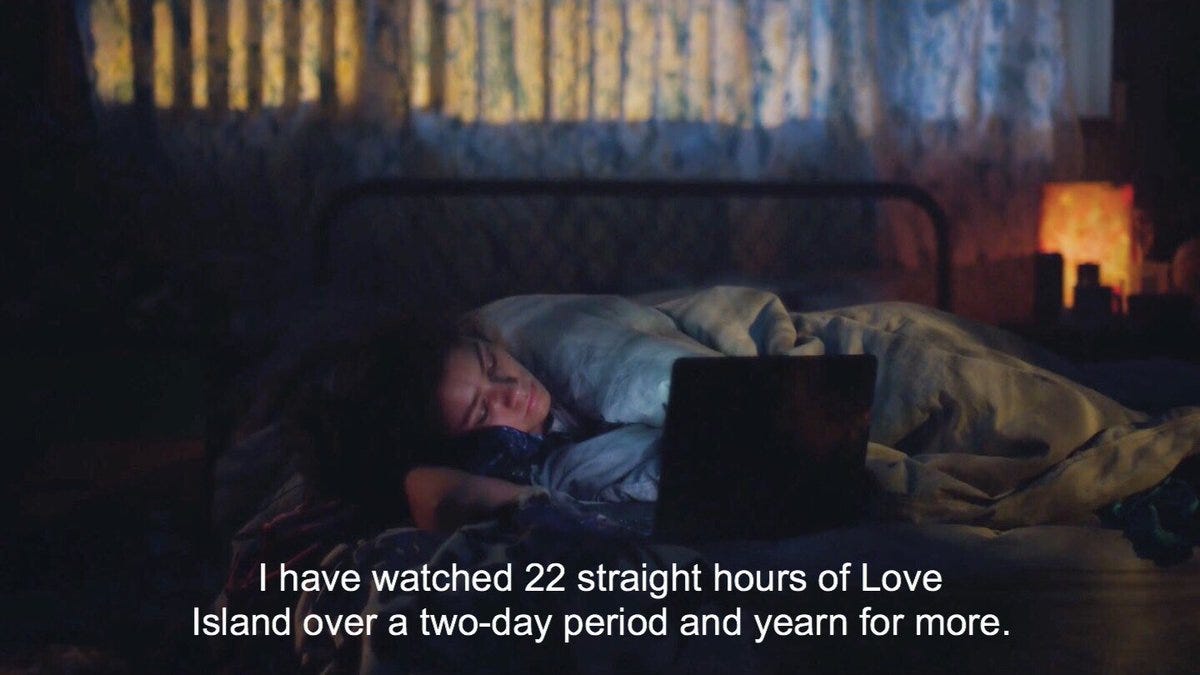
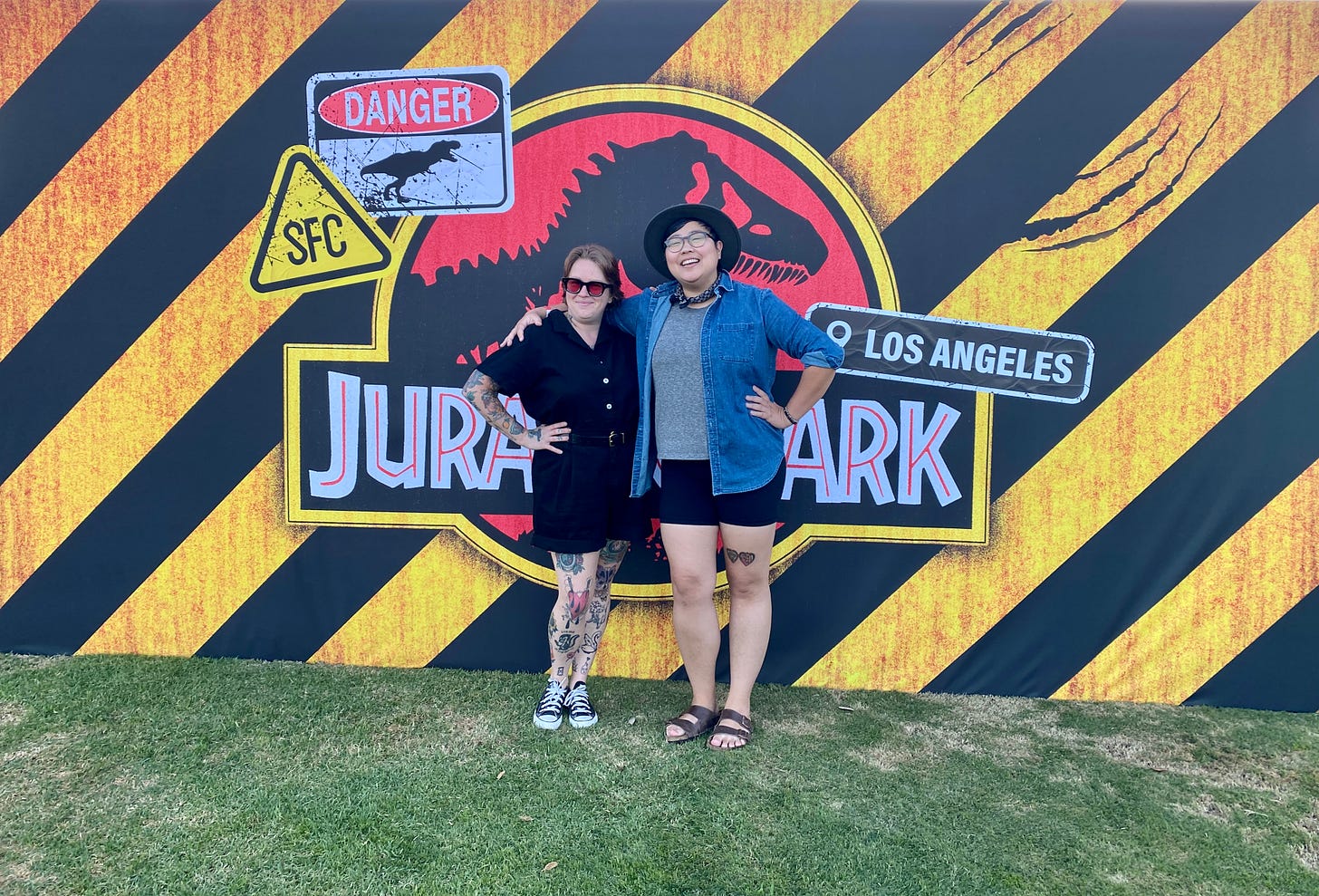
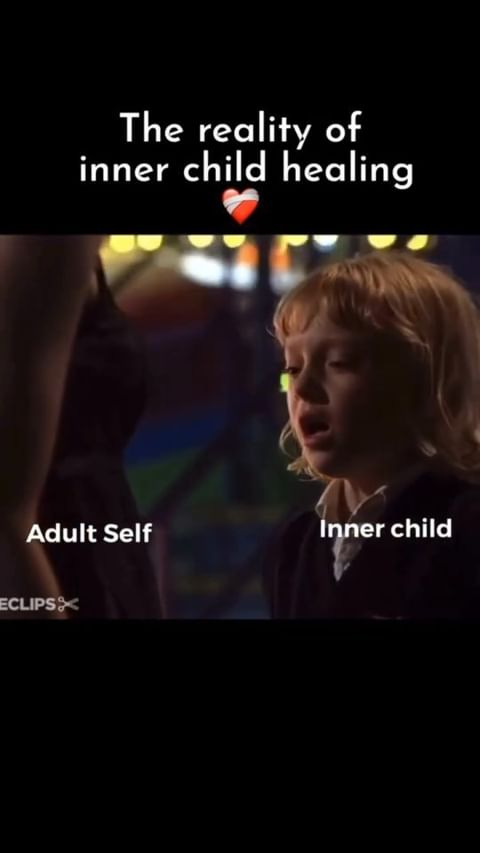
Oh I love this and have been thinking through very similar ideas. The hardest stuff in my relationship right now is the stuff that reminds me of my childhood that past partners’ *didnt* trigger so it obviously at first glance feels like “this is not a good fit.” But I had the same realization: oh shit, this is my chance to heal it —not just find a partner who can parent me in ways I needed only to disappoint me some other way and have me freak out on them later. 🤪 thanks for articulating it so clearly and brilliantly as always 🙏🏻
“Because we grew up with caregivers who were unsafe, our safety map is all messed up. When in danger, we turn towards our caregivers to keep us safe. But when our caregivers are the danger, the only way we know how to make sense of this is to find safety dangerous, and dangerous things safe.” Oh wow. Seeing this is so validating and so well said. I’ve been working through this very thing for the past few years w my partner. It’s tough stuff but so rewarding.